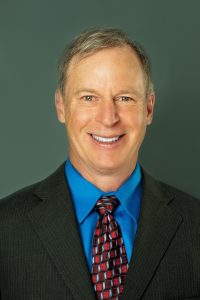
More Dental Health Articles
Dentistry and ADHD
Attention deficit hyperactivity disorder (ADHD) and attention deficit disorder (ADD) are the most common neurobehavioral conditions in school-aged children. Nationally, anywhere from two to eighteen percent of people are affected. The total number of Americans diagnosed with ADHD has risen steadily since 2003.
ADHD is characterized by inattention, impulsivity, and overactivity, and usually begins during childhood. “It is a developmental disorder of self-control or the ability to regulate behavior,” said Lisa Dowst-Mayo, a dental hygiene program director at Concorde Career College in San Antonio. “Children with ADHD have a significant impairment in their ability to inhibit behavior that affects daily life. Working with these patients in the dental office can be a challenge.” It is more common in boys than in girls, is a lifelong condition, and not preventable. Providing dental care for ADHD patients and others with special needs can be challenging.
Sensory Overload
Raising children is seldom easy, but parents of children with ADHD – or any special needs condition – face additional challenges. Kids with ADHD tend to have poor oral hygiene, and have greater potential for tooth decay. There are also higher rates of bruxism (teeth grinding), and higher risks for dental/oral trauma than in other children.
Many experts contend that children and adults with ADHD can be treated in general dental settings, but is not always practical. Young ADHD patients tend to have more behavior management issues during appointments Just sitting through a checkup can be challenging. The dental environment – its sights, smells, and sounds – can be enough to trigger an adverse reaction.
Lisa Dowst-Mayo calls this sensory overload, and advises dentists not to make too much of these reactions. “In the dental chair, it is best to simply ignore behaviors that may seem inappropriate, because they are usually unintentional,” she says. Fidgeting, for example, may seem excessive, but can help ADHD children feel more relaxed. She also urges patience, because many ADHD kids need extra time to process directions, such as “Open wide.”
Parents can do a lot to help make things go smoother. Schedule appointments in the morning, because most ADHD kids tend to do better at earlier hours. Bring a favorite toy or game to keep them occupied, and keep them informed about what is going on and what is expected. Rewards and positive reinforcement for cooperative behavior can also be effective.
For dental professionals and other health care providers, the keys are empathy and compassion. “Treating a dental patient with ADHD does not have to be a painful, strenuous experience,” Lisa Dowst-Mayo says. She recommends dental professionals abide by strategies summarized by the acronym, UNCAPPED:
U. Understanding for your patient
N. Non-judgmental attitude
C. Calm. Stay calm and relaxed
A. Attitude. Keep a positive attitude
P. Praise. Be generous with positive praise
P. Patient. Be patient with your client’s needs
E. Empathy
D. Directness
An excellent resource for information on ADHD is the Children and Adults with Attention Deficit Hyperactivity Disorder website (www.chadd.org). CHADD is a national non-profit providing information, advocacy, and support for people with ADHD.
Other Articles You May Find of Interest...
- Appliances Are In Now: How To Manage TMJ Disorder
- Why The Tooth Fairy Is Very Fun – and Important!
- Let’s Smile Dental’s 7&Up Club
- Strengthening Smiles: Understanding the Importance of Splinting Periodontally Involved Teeth
- Understanding Soft Tissue Grafting: A Key To Periodontal Health
- New Solutions for Dentures and Dental Implants
- Benefits Of Immediate Dental Implants

















